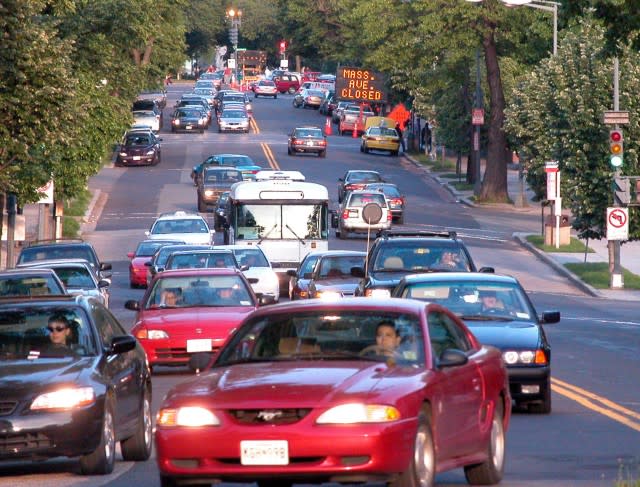Gas prices expected to rise this summer

Be prepared to adjust your family’s summer vacation budget. Prices at the fuel pump are expected to be 14 percent higher than last summer and the U.S. government predicts a national average of $2.74 per gallon.
Brent Crude, the global benchmark, surged to to $72 Thursday, which is higher than the Energy Information Administration's forecast of $63 for the summer. Last summer’s high was $51 indicating that gas prices could rise even higher than the government’s estimate.
MORE: While automakers tout green cars, they're fighting the EPA
The summer driving season—April through September—is historically marked by increased travel as Americans head out for annual vacations. The EIA expects highway travel to rise 1.3 percent over last summer.
Last year at this time, as summer driving season was beginning, a gallon of regular gasoline was selling for an average of $2.39. According to AAA, the average price of a gallon of regular gasoline was $2.66 on Tuesday.
This may seem like daunting news, but prices are still far cry from record highs reached during 2008 when it was uncommon to find fuel for less than $4 per gallon during the summer in the U.S.
DON'T MISS: Proposed bill calls for ban on internal combustion cars in California by 2040
It is important to remember that these are national averages. Drivers in West Coast states including California, Oregon, Nevada, Washington State, Hawaii and Alaska are already paying more than $3 per gallon, according to AAA. California's average gas price has jumped to $3.52, compared with $2.99 a year ago.
Prices are rising largely because of the agreement that Saudi Arabia-led OPEC and Russia made in 2016 to raise prices by limiting production. OPEC and its allies agreed last November to extend the agreement through the end of this year.
Another factor raising prices is last year’s decision by Saudi Arabia to reduce the amount of oil that it exports to the U.S.. Currently, the U.S. is importing 14 percent less oil from Saudi Arabia.
Be prepared to adjust your family’s summer vacation budget. Prices at the fuel pump are expected to be 14 percent higher than last summer and the U.S. government predicts a national average of $2.74 per gallon.
Brent Crude, the global benchmark, surged to to $72 Thursday, which is higher than the Energy Information Administration's forecast of $63 for the summer. Last summer’s high was $51 indicating that gas prices could rise even higher than the government’s estimate.
MORE: While automakers tout green cars, they're fighting the EPA
The summer driving season—April through September—is historically marked by increased travel as Americans head out for annual vacations. The EIA expects highway travel to rise 1.3 percent over last summer.
Last year at this time, as summer driving season was beginning, a gallon of regular gasoline was selling for an average of $2.39. According to AAA, the average price of a gallon of regular gasoline was $2.66 on Tuesday.
This may seem like daunting news, but prices are still far cry from record highs reached during 2008 when it was uncommon to find fuel for less than $4 per gallon during the summer in the U.S.
DON'T MISS: Proposed bill calls for ban on internal combustion cars in California by 2040
It is important to remember that these are national averages. Drivers in West Coast states including California, Oregon, Nevada, Washington State, Hawaii and Alaska are already paying more than $3 per gallon, according to AAA. California's average gas price has jumped to $3.52, compared with $2.99 a year ago.
Prices are rising largely because of the agreement that Saudi Arabia-led OPEC and Russia made in 2016 to raise prices by limiting production. OPEC and its allies agreed last November to extend the agreement through the end of this year.
Another factor raising prices is last year’s decision by Saudi Arabia to reduce the amount of oil that it exports to the U.S.. Currently, the U.S. is importing 14 percent less oil from Saudi Arabia.

 Yahoo Autos
Yahoo Autos 
